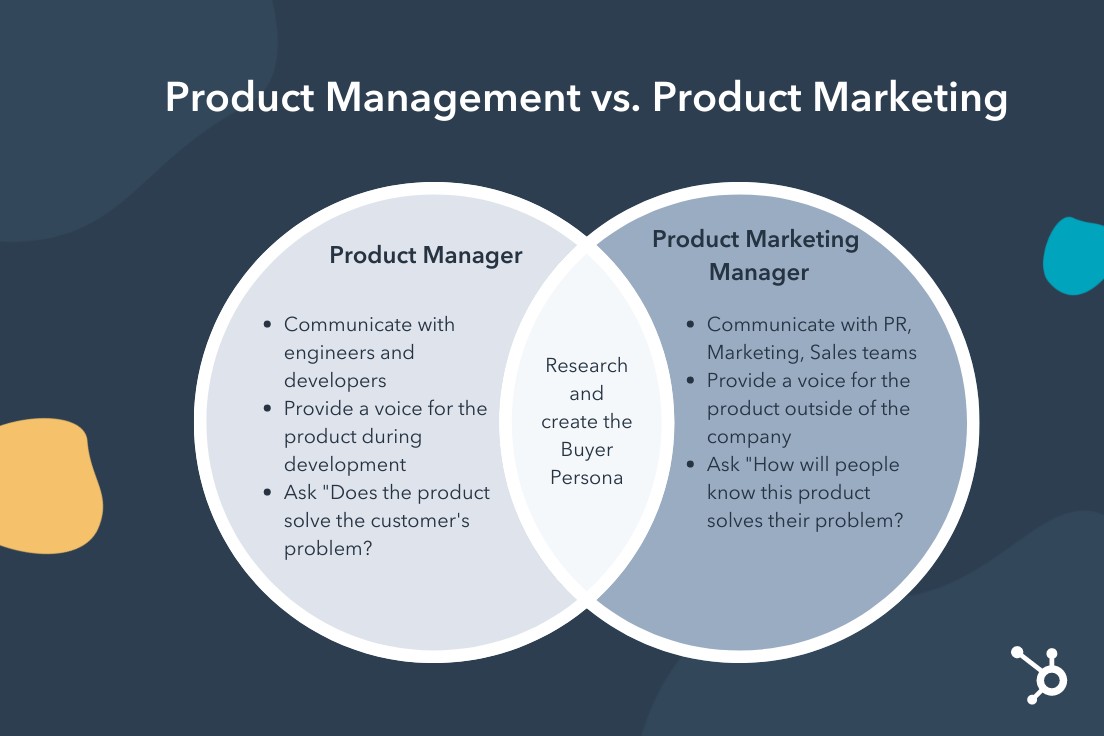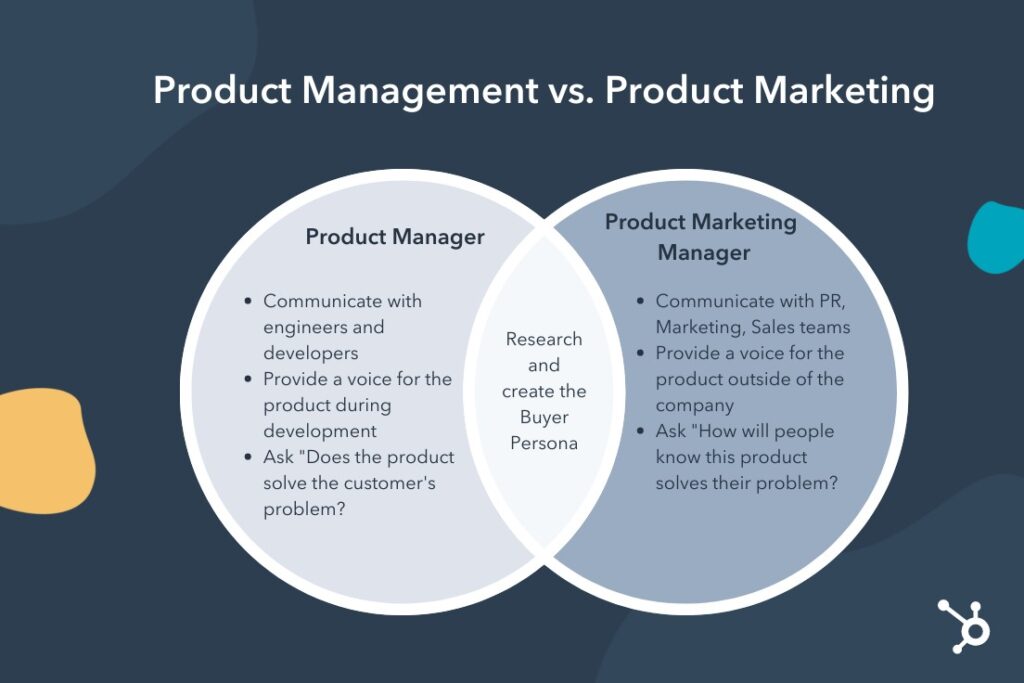Your research and development team has been working on a new product for months and putting valuable resources into its design and manufacturing. They’ve carefully researched the market and the problem they intend to solve.
They’ve brainstormed and planned out the best possible product, and then meticulously crafted it before testing its functionality to make sure that it does indeed do what it was meant to do.
You are convinced that this is the best addition to the world since chocolate.
With an amazing product ready to go to market, there’s only one question left in your mind. How are you going to announce your product and get it in front of potential customers, i.e. the people who will actually buy it?
For this step of the process (and ideally since the very beginning of research and development), you’ve got a product marketing manager ready to take the next step with your new creation. Without marketing, your product (no matter how amazing it is), will never be found by the customers whose problem it would solve. This could lead to lackluster sales, a financial failure, and potential customers who are still suffering from their original problem.
From that perspective, you can see how valuable good product marketing managers are. Let’s learn more about this pertinent role.
What is a product marketing manager?
You may be wondering, what is a product marketing manager (PMM) and how essential are they to my product launch? A product marketing manager is an individual who takes ownership of the positioning, messaging, and branding of a product.
To get an even better idea of this role, let’s take a look at this sample product marketing job description.
Product Manager Job Description
A product marketing manager will be responsible for overseeing the creation and distribution of promotional campaigns for key products. This individual will have a keen understanding of the product’s target audience, and in-depth knowledge of relevant product features.
Product Marketing Manager Skills and Qualifications:
- Foundational marketing and campaign management experience
- Project management skills
- Strong organizational and communication skills
- The ability to analyze relevant information and make informed decisions
- The ability to prioritize tasks and responsibilities across projects
For this role, employers look for a minimum of a Bachelor’s degree, ideally in business administration, marketing, or a related field of study. Some employers may seek candidates who hold advanced degrees and have more extensive experience in marketing, sales, or advertising.
While not required, there are certifications available (such as the Certified Product Marketing Manager distinction) that can help better prepare Product Marketing Managers for the responsibilities they are about to take on.
According to PayScale, the base salary for Product Marketing Managers in the U.S. is $92,628 per year though this can vary depending on the company and level of experience.
What does a product marketing manager do?
These individuals are responsible for crafting a story about the product that will entice potential customers to purchase the product, and collecting customer feedback after launch.
When the product is being prepared for launch, the product marketing manager (or team) will be brought into the process to educate the public about the value and benefits of the offering so they can convert potential customers into raving fans.
To do this, the PMM will focus on three levels of the sales funnel:
- Acquisition: Bringing awareness to your product through content such as social media, copywriting, and blogs. This requires the product marketing manager to determine what type of campaign needs to be done, create a budget for the marketing endeavors, craft a project plan to map out when this content will be released, and oversee a team who will create the desired content.
- Engagement: Building trust and creating conversation with potential customers through events, campaigns, and specific calls to action.
- Conversion and Retention: Converting potential customers into paying customers for one-time purchases and keeping existing customers loyal through subscription models or add-on purchases (when appropriate).
It’s worth noting that from one company (or campaign) to the next, the responsibilities and expectations placed on a product marketing manager may differ.
How does a product marketing manager differ from a product manager?
With similar titles, it can sometimes be difficult to understand the different roles available within a company. Many often confuse product marketing managers with product managers, and while there are similarities, the roles carry very different responsibilities.
Both a product marketing manager and a product manager provide a voice for the product. However, the difference is who they are speaking to. A product manager is vocal during the production stage of a product. They speak internally on behalf of the product, communicating with engineers and developers regarding the features and functionality of a product. A product manager is focused on answering the question, "Does this product solve the problem we intend it to solve?"
A product marketing manager, on the other hand, is responsible for speaking to the outside world. They are focused on the question, "How will people know that this product solves their problem?" They will create a launch plan and work with the social media team, the PR team, the marketing team, and the sales team to ensure a successful product launch and to spread the word regarding this new or improved product.
While these individuals will fulfill very different roles, they will find themselves working together at times. Both the product manager and the product marketing manager must have a solid understanding of the buyer persona and will share the research they’ve done to assist the other.
 The role of a marketing manager can be confused with a product marketing manager as well. Again, there are similarities and overlap, however, a marketing manager often works on general marketing activities to grow awareness across a company’s user base. They will typically spend less time doing research and developing buyer personas.
The role of a marketing manager can be confused with a product marketing manager as well. Again, there are similarities and overlap, however, a marketing manager often works on general marketing activities to grow awareness across a company’s user base. They will typically spend less time doing research and developing buyer personas.
Creating a product is only half the battle. In order to succeed with your product launch, make your product wildly profitable, and ensure that it gets into the hands of the individuals you intended to help, you need someone at the marketing helm. When you choose the right product marketing manager, they will lead the right customers to your product.


